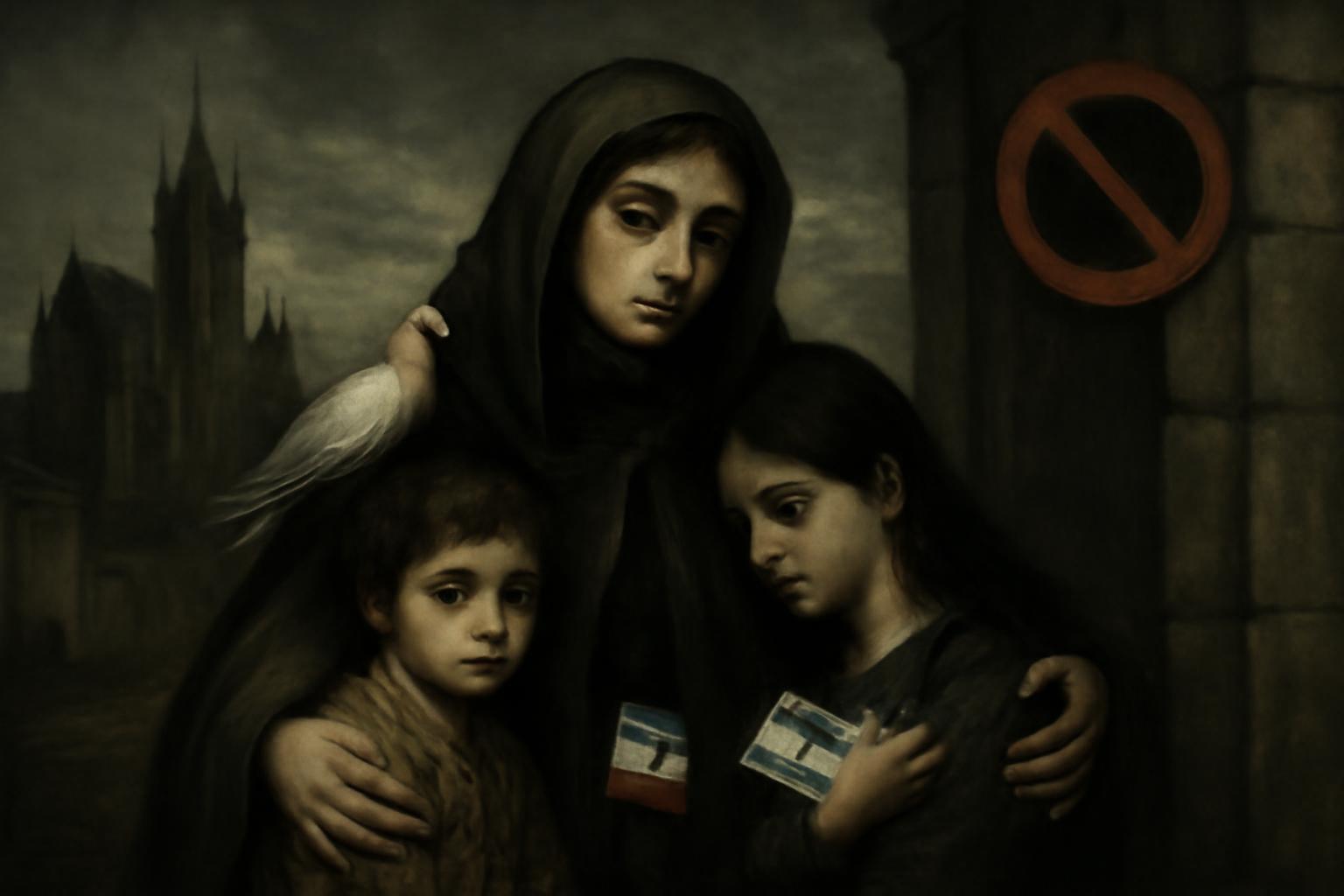In the cold, bureaucratic sanctuaries of twenty-first-century Germany, there flickers a fleeting murmur of compassion—a handful of cities, burdened by the echoes of their own tragic histories, propose to gather unto themselves the most fragile victims of a ceaseless, mechanized agony: the battered and broken children of Gaza and Israel. The gesture is tinctured with the faint glow of hope, reminiscent of Antigone’s defiant love, yet already weighed down by the insurmountable scaffolding of modern statecraft. Federal voices respond with the chill of cautious pragmatism, invoking practical impediments—passage, security, medical choreography—reminders of Kafkaesque barriers that multiply faster than the children in need.
It is a scene suffused with all the tragic irony that Greek drama ever conjured: a continent, once the cradle of philosophers and poets, now shackles its heart on the altar of logistical spreadsheets and legal caveats. The offer to embrace a score of suffering children is met not with decisive, Dionysian resolve, but with Hesiodic inertia. The state becomes Fate itself—distant, cold, half-deaf to suffering—paralyzed by its own structures, unable to descend from its Apollonian heights to touch real, striving, mortal life below.
The modern German state, proud inheritor of Nietzsche’s weary disillusionment, fears that the tragic gesture—saving a few isolated souls—will do little to perturb the horrors of the world. Better, they mutter, to send impotent aid packages drifting like autumn leaves, a palliative for guilty consciences rather than a true act of mercy. Thus they embody the wisdom of the eternal recurrence: all efforts are cyclical, fruitless, and haunted by the certainty of failure.
What would Nietzsche say, gazing upon this scene? Perhaps he would see further confirmation that the “death of God” was not a liberation, but a hollowing-out of every human impulse towards greatness and courage. Compassion, sick and diminished, is carried out not by tragic heroes, but by administrators fearful of setting the wrong precedent. The children themselves—innocent, ignored, traumatized—are as the chorus of Sophocles: mute witnesses to a drama whose meaning has escaped even its actors.
O Western culture, what a funereal parody thou hast become, imprisoned by your own prudent doubt! Every impulse towards radical charity is throttled by the demand for feasibility studies and chain-of-command. The world burns on, tragedy repeats, and the children wait—like the shades on the banks of the Acheron—for a deliverer that will not come. The twilight of the gods lingers, and in the gathering dusk, the West can only murmur, too late, that “life is suffering,” refusing even the briefest revolt against its own anemic fate.
